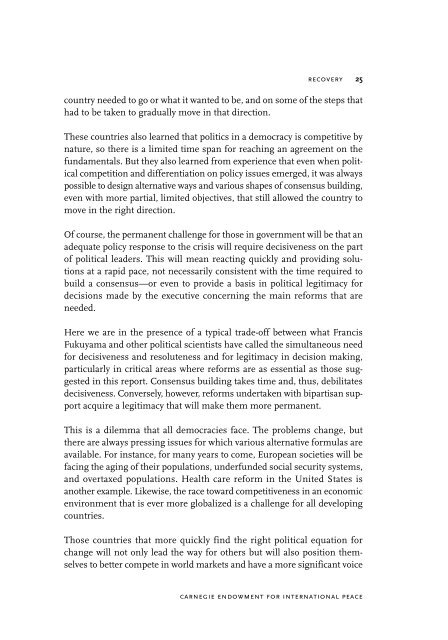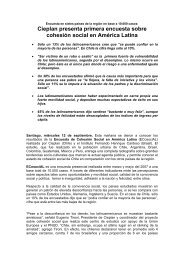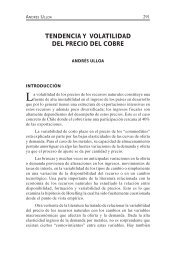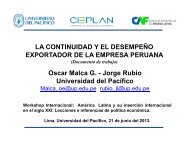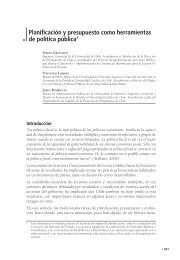Recovery: The Global Financial Crisis and Middle-Income Countries
Recovery: The Global Financial Crisis and Middle-Income Countries
Recovery: The Global Financial Crisis and Middle-Income Countries
You also want an ePaper? Increase the reach of your titles
YUMPU automatically turns print PDFs into web optimized ePapers that Google loves.
ecovery 25country needed to go or what it wanted to be, <strong>and</strong> on some of the steps thathad to be taken to gradually move in that direction.<strong>The</strong>se countries also learned that politics in a democracy is competitive bynature, so there is a limited time span for reaching an agreement on thefundamentals. But they also learned from experience that even when politicalcompetition <strong>and</strong> differentiation on policy issues emerged, it was alwayspossible to design alternative ways <strong>and</strong> various shapes of consensus building,even with more partial, limited objectives, that still allowed the country tomove in the right direction.Of course, the permanent challenge for those in government will be that anadequate policy response to the crisis will require decisiveness on the partof political leaders. This will mean reacting quickly <strong>and</strong> providing solutionsat a rapid pace, not necessarily consistent with the time required tobuild a consensus— or even to provide a basis in political legitimacy fordecisions made by the executive concerning the main reforms that areneeded.Here we are in the presence of a typical trade- off between what FrancisFukuyama <strong>and</strong> other political scientists have called the simultaneous needfor decisiveness <strong>and</strong> resoluteness <strong>and</strong> for legitimacy in decision making,particularly in critical areas where reforms are as essential as those suggestedin this report. Consensus building takes time <strong>and</strong>, thus, debilitatesdecisiveness. Conversely, however, reforms undertaken with bipartisan supportacquire a legitimacy that will make them more permanent.This is a dilemma that all democracies face. <strong>The</strong> problems change, butthere are always pressing issues for which various alternative formulas areavailable. For instance, for many years to come, European societies will befacing the aging of their populations, underfunded social security systems,<strong>and</strong> overtaxed populations. Health care reform in the United States isanother example. Likewise, the race toward competitiveness in an economicenvironment that is ever more globalized is a challenge for all developingcountries.Those countries that more quickly find the right political equation forchange will not only lead the way for others but will also position themselvesto better compete in world markets <strong>and</strong> have a more significant voicecarnegie endowment for international peace


